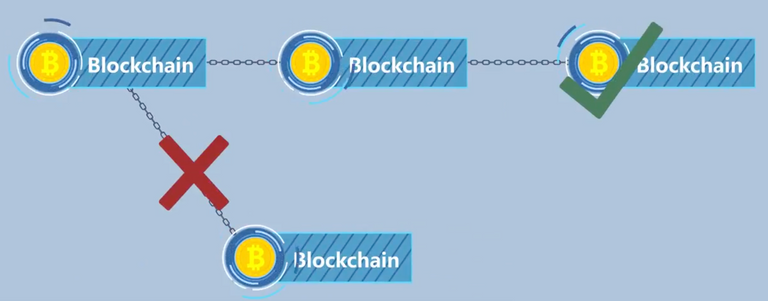The Longest Blockchain is the True Blockchain. According to the Bitcoin Whitepaper, nodes always treat the longest blockchain as the True blockchain and will continue to expand on it. All miners will work on the longest blockchain which helps maintain the uniqueness and authenticity of the blockchain ledger. If someone sends you Bitcoin that is not recorded on the longest blockchain, you may lose that coin.
What is the Longest Blockchain?
With every miner mining the same problem simultaneously, it becomes more likely that two or more miners find the nonce for the current block at the same time. When this occurs, the blockchain will fork, and some miners may choose to keep mining on one of the forks to extend the blockchain. When this happens, the block with the larger collection of Proof of Work is accepted and added to the blockchain. This is the general principle behind having to wait for 3-6 confirmations for a purchase to be completed. The system needs to make sure that the block that contained your transaction is in fact on the Longest and accurate blockchain. The diagram below should help visualize how this works.

What About the Other Blocks?
As you can see in the diagram there is a fork in the chain, and it begins to go in 2 directions. The one direction becomes the longest, due to the fact that the next block is attached to that chain. What happens to the other block, it also had transactions? Those blocks are referred to as Orphan blocks. Blocks that are not accepted or added into the blockchain normally due to a network time lag during the acceptance of the block. Orphan blocks are valid and verified blocks but are rejected by the network. Orphaned blocks are also commonly referred to as Detached Blocks. They are not part of the network and live in isolation. Orphaned blocks are also created if a hacker or malicious actor, with sufficient hashing power, attempted to reverse transactions that were already approved by the network. Any valid transactions contained within an orphaned block are added to the next valid block that is accepted onto the blockchain.
Hope you have found this information useful and easy to understand, always check out A Chain of Blocks which is the source for this article and many more that breakdown complaex crypto concepts in a simple way.